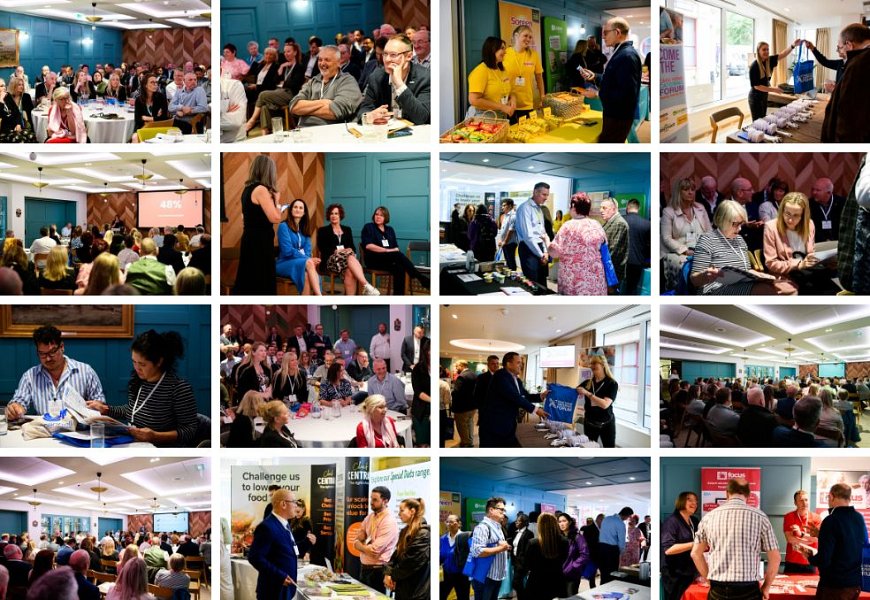Fresh Thinking, Fresh Approach - all done and dusted!
The first solo edition of the Care Home Catering Forum was, according to delegates and exhibitors, a resounding success!

The Care Home Catering Forum 2024 finally took place last week (5th June) at the Farmers & Fletchers Hall in London’s Barbican, a purpose built, modern facility that proved just the right size for the 120 delegates who attended the event.
Delegates were welcomed with coffee and pastries and were able to spend the registration period browsing the exhibition stands fielded by companies including allmanhall, apetito, Brakes, Chef Central, Kerrymaid, Soreen, Focus on Undernutrition, Wiltshire Farm Foods and Yeo Valley, while also catching up with friends and colleagues from across the care sector.
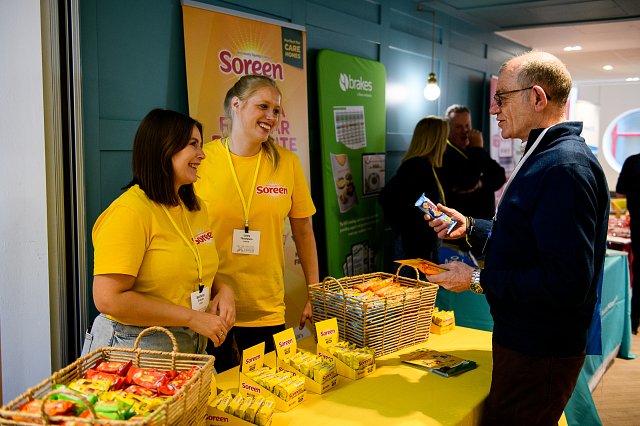
The event proper began with a welcome from Care Home Catering Editor Val Hirst, which was quickly followed by the first speaker, Fraser Rickatson, from Care England. Fraser presented an admirably succinct overview of the challenges that the care sector is currently facing, together with a resumé of the findings that resulted from a research survey undertaken by Care England in collaboration with apetito. This revealed that nearly all care homes are struggling to balance their books due to the ever-rising cost of food and energy. However, despite all of the undoubted obstacles, many homes have found innovative ways to improve the dining experience that they can offer their residents
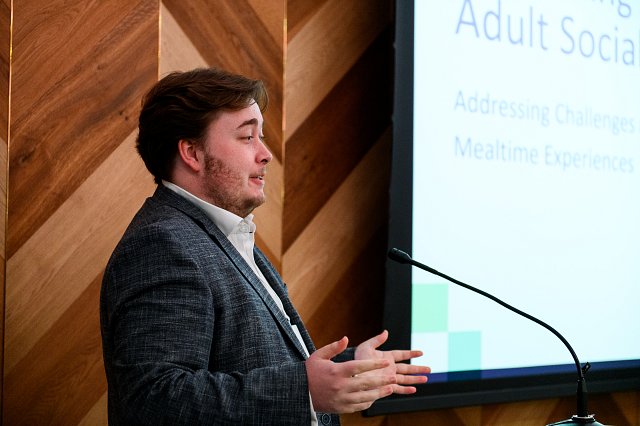
.The next speaker was Rachael Masters, a dietician and the founder of Focus on Undernutrition, who provided the audience with a whistlestop tour of all things dysphagia related. Dysphagia is a perennial problem in care homes, with between 50-75% of residents suffering from some level of swallowing difficulty. Rachael provided lots of useful tips and hints on how to keep residents properly nourished and hydrated, while also helping them to rediscover their enthusiasm for and enjoyment of food
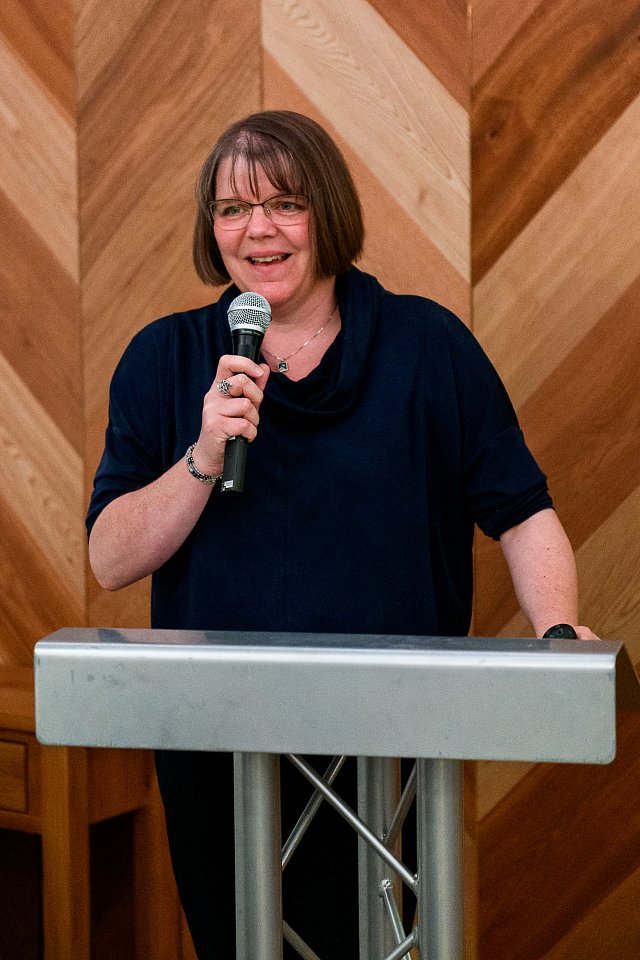 .
.
Rachael was followed by Paul Mannering, a chef of 25 years standing and the former principal of HiT’s Chef Academy. Paul, whose is now HiT’s National Hospitality and Culinary Lead, spoke about the link between our brains and our guts – the gut/brain axis – and how the food we eat can affect our cognitive function as well as our physical health and wellbeing. He discussed how this knowledge can be successfully used to tweak menus in order to ensure that care home residents receive all of the nutrients they need and also suggested how leftover food can be creatively repurposed to produce nutrient-rich and tasty morsels, such as chocolate brownies from used coffee grounds and a fermented probiotic drink from discarded pineapple or banana skins. This was indeed food for thought.
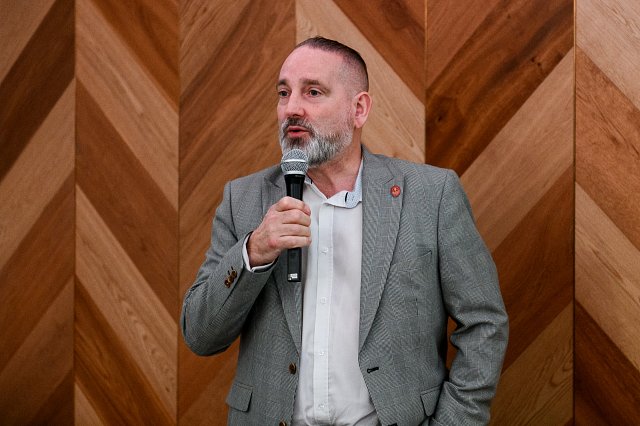
After a welcome refreshment break that also offered a further opportunity for networking and exhibition viewing, Eva Humphries, a BANT registered nutritionist and nutritional therapist, took her place at the lectern to emphasise how crucial it is to ensure that older people imbibe all of the necessary vitamins and minerals they need to maintain their health and fitness. She explained that because our ability to process the food we eat declines as we age, we need to ensure that every mouthful is packed full of nutrients to ensure optimal nutrition. She added that this is particularly important when cooking for residents with diminished appetites, before providing examples of how she had successfully helped a care home to redesign and fortify the meals it offers, with great success.
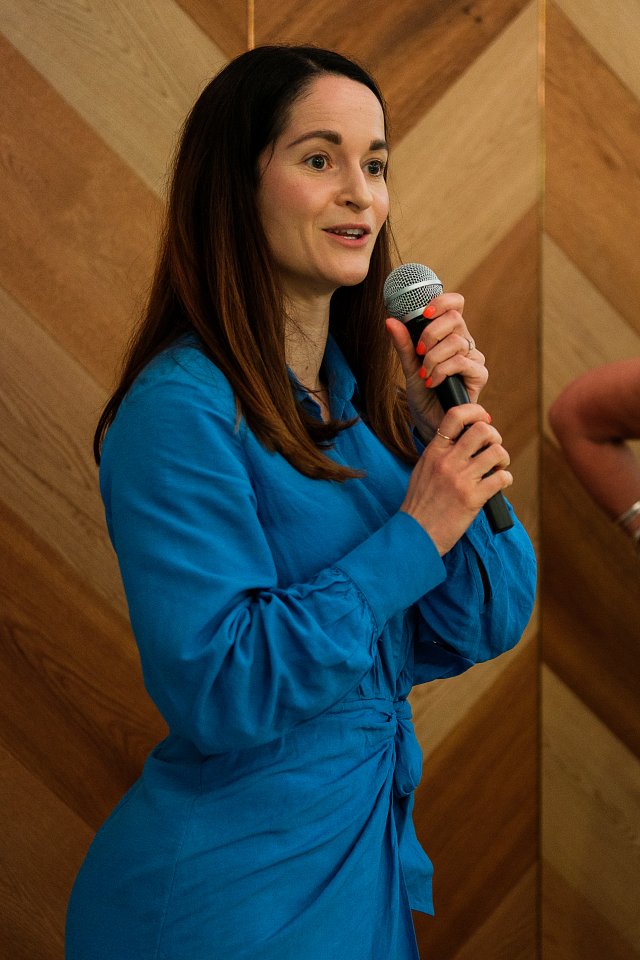
Jo Bonser, the founder of Dignified Dining spoke movingly about how she had helped her elderly mother, who was living with dementia, to rediscover her appetite. She showed a short film that perfectly illustrated that however much we age we still retain our own individuality and are perfectly entitled to retain the same food and drink preferences that we have previously exercised too. So effective was this film that it provoked more than a few tears amongst the audience members who could plainly reconcile the sentiments expressed therein with the needs and desires of some of the residents in their care. Jo then went on to explain how mealtimes can be made more joyful and satisfying for older people with obvious beneficial results.
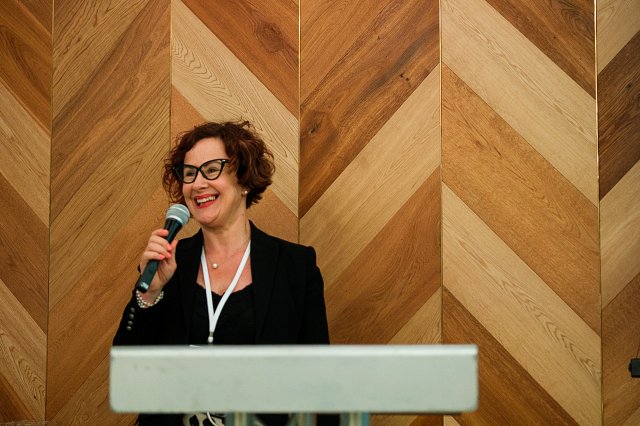
The last speaker of the morning session was Professor Opinder Sahota, the Ortho Geriatric lead at Nottingham University Hospitals NHS Trust. Opinder also led the team that have developed N-ICE Cream a protein enriched ice-cream for patients suffering from fragility fractures and traumatic injuries. He explained that he had grown very frustrated by the amount of food that was wasted in hospital, while also becoming very concerned that his patients weren’t receiving the nutrients they needed to support their successful recovery. He explained that for older people, any confinement in bed leads to muscle wastage and if this is further compounded by malnutrition, healing is delayed. Since ice-cream is always a crowd pleaser and easy for most people to eat, the NUH team decided to develop a version that while being every bit as moreish as normal ice creams, also packs a real protein punch. Initial results indicate that it has achieved the desired nutritional effect. Currently being produced commercially by Matlock Meadows Dairy Farm in a range of delicious flavours, it is hoped that foodservice companies will soon start distributing N-ICE Cream too.
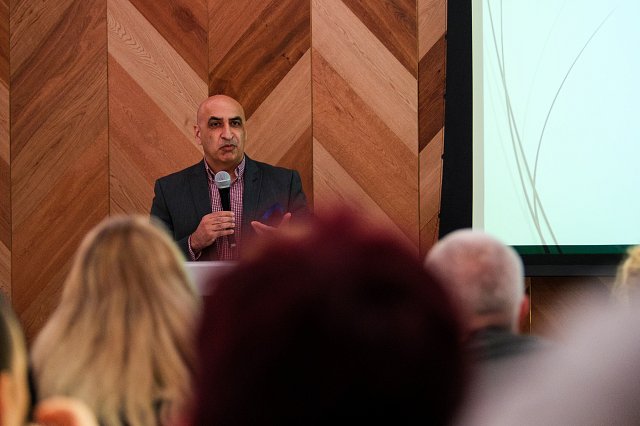
After lunch, the afternoon session began with a presentation from Neel Radia, the chair of the National Association of Care Catering (NACC), who provided an update on the important work of the NACC and discussed how the association seeks to assist care caterers when battling the issues that they are currently facing.
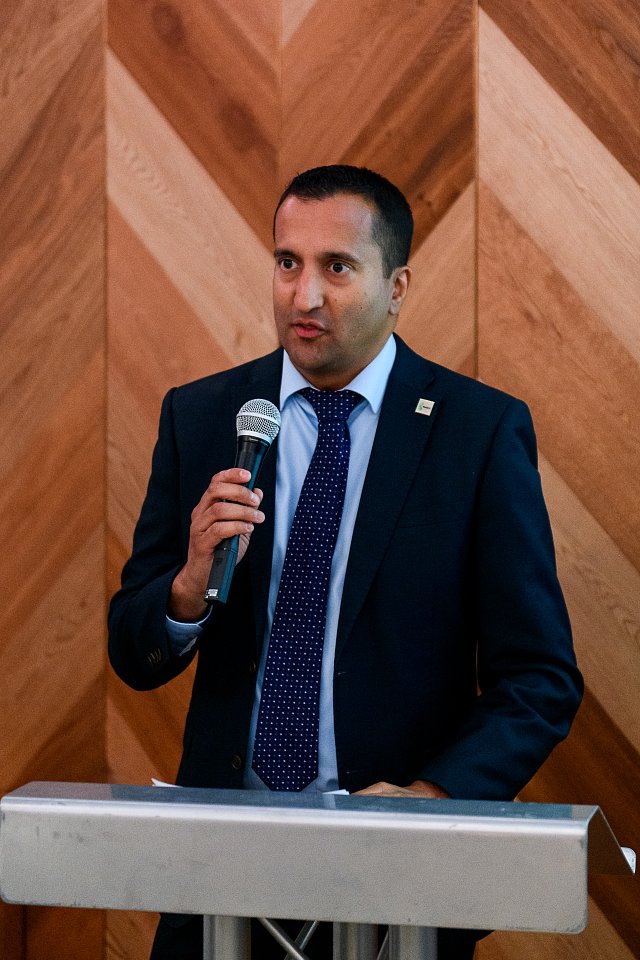
The final presentation of the day came from David Titman, a registered nutritionist (RNutr) and food scientist who is also the co founder and a director at Raising Nutrition, which collaborates with companies to develop responsible food strategies. David explained how dietary behaviour is influenced by a multitude of factors, including our individual preferences, beliefs, culture, environment, and psychological factors. This means that the choices we make are made without our conscious awareness and are thus often irrational as a result. He then described how our selections can be affected – positively or negatively - by the marketing messages that we receive and the quality and prominence of the information we are given. He concluded that by bringing together all the aspects of how food choices can be made, care caterers can design an eating experience that makes it easier for people to make healthier and more sustainable choices.
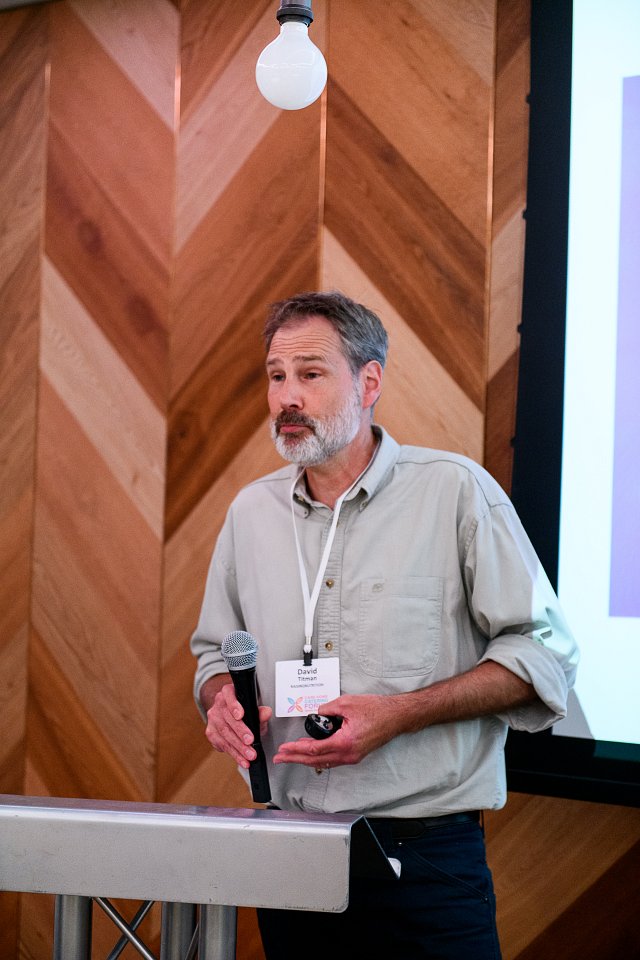
David’s presentation was followed by a Q & A session with Val Hirst using questions posed by the audience to quiz Rachael, Eva and Jo.
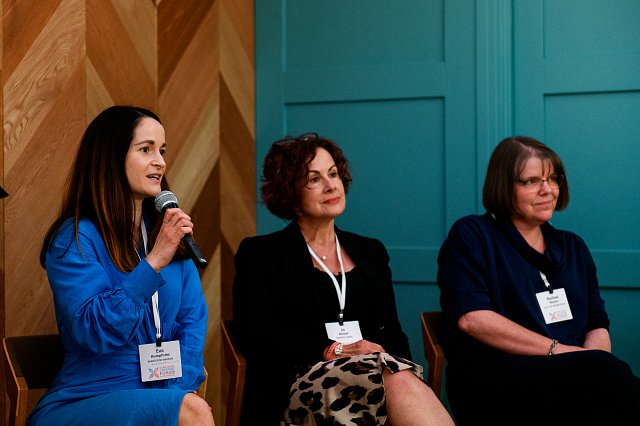
The event then culminated with the presentation of the Care Home Catering Awards – for further information on the winners visit:
https://www.carehomecatering.co.uk/story.php?s=2024-06-07-care-home-catering-awards-winners-crowned
It was generally agreed that the day was both interesting and informative and the feedback from both delegates and exhibitors was overwhelmingly favourable, with many vowing to return next year.
Planning for the 2025 event is now underway and we’d love to hear your ideas and suggestions for topics that you would like our speakers to cover!





